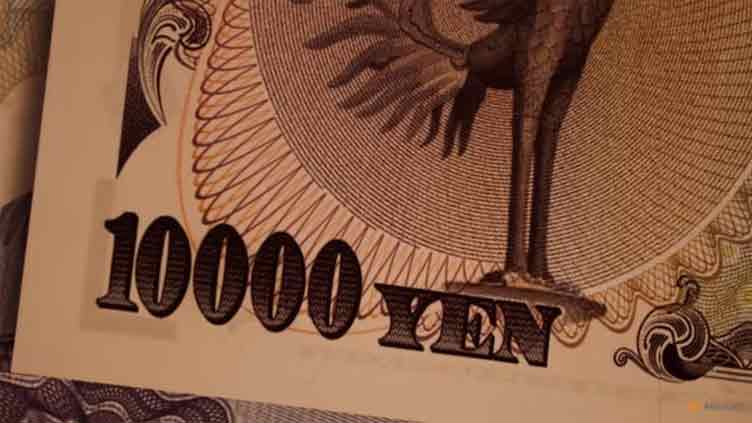Yen slide beyond 155 is a pain point for half of Japan firms

Business
Reuters survey shows more than a third of them want interest rate hikes
TOKYO, May 23 (Reuters) - Nearly half of Japanese firms find the yen's slide beyond 155 to the dollar harmful to their business, roughly double the percentage of those who see the currency's weakness as a positive, a Reuters survey showed on Thursday.
The yen, under pressure from a wide gap between interest rates in the United States and Japan, plunged to a 34-year low of 160.245 yen a dollar late last month. But it has since recovered some ground to around 156.36 after suspected rounds of intervention by Japanese authorities.
More than a third of Japanese companies want the Bank of Japan to raise interest rates further in response to the yen's softer trend, the survey also showed, indicating they are willing to face higher borrowing costs to support the currency.
The yen has lost roughly 10 per cent against the dollar so far this year despite the BOJ's decision in March to end eight years of negative rates.
The poll showed 16pc of respondents regarded the yen's fall beyond 155 per dollar as greatly negative to their operations and 32pc saw it as somewhat negative, while a combined 25pc said it would be either greatly or somewhat positive.
Read more: Japan manufacturers want a stable yen, top companies agree to 5.58pc average pay hike
"I very much fear Japan's consumer market might contract (due to a weak yen), and that we might get used to it," one manager at a food company wrote.
The weak yen has become a headache for policymakers by cooling Japanese domestic consumption. While a boon for exporters and inbound tourism, it increases import costs, adds to inflationary pressures and squeezes households.
The survey showed 37pc of respondents wanted the central bank to raise Japan interest rates again to counter the yen's weakness, while 34pc wanted the government to intervene in the foreign exchange market to stem the currency's decline.
Moreover, 30pc of companies polled by Reuters said the range of 140-149 yen to the dollar is desirable for them and 28pc said the 130-139 yen range is ideal, while no firms regarded the yen trading below 160 yen to the dollar as favourable.
To guard themselves against the yen's depreciation, almost two-thirds of the respondents are looking into raising prices of their products, while 16pc are considering switching to the domestic procurement of parts and raw materials, the poll showed.
The survey of 493 companies was conducted for Reuters by Nikkei Research from May 8-17, with companies responding on condition of anonymity. A total of 229 companies responded.
Asked if Japan has exited from deflation once and for all, 27pc of respondents said it has and one-third said it has not, with the remaining 40pc saying it's hard to tell.
"First, we need to ascertain whether Japan's inflation is being driven by higher costs or growing demand," a manager at a wholesaler said.
Prime Minister Fumio Kishida is counting on high wage growth in recent years to put a decisive end to more than two decades of deflation.


